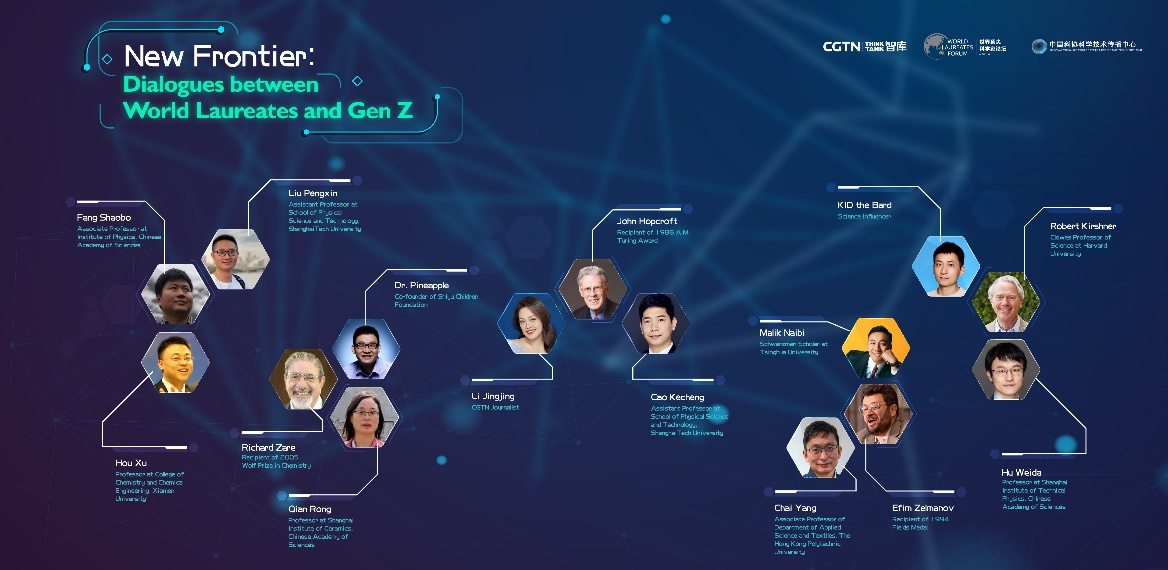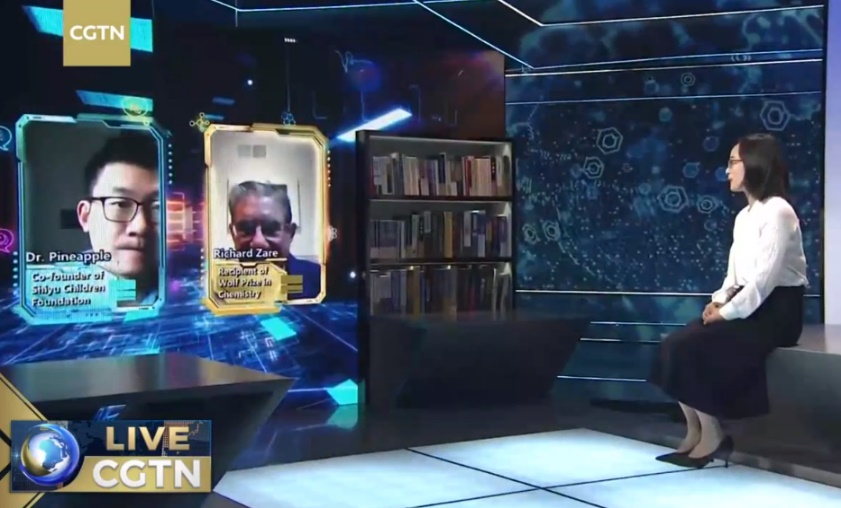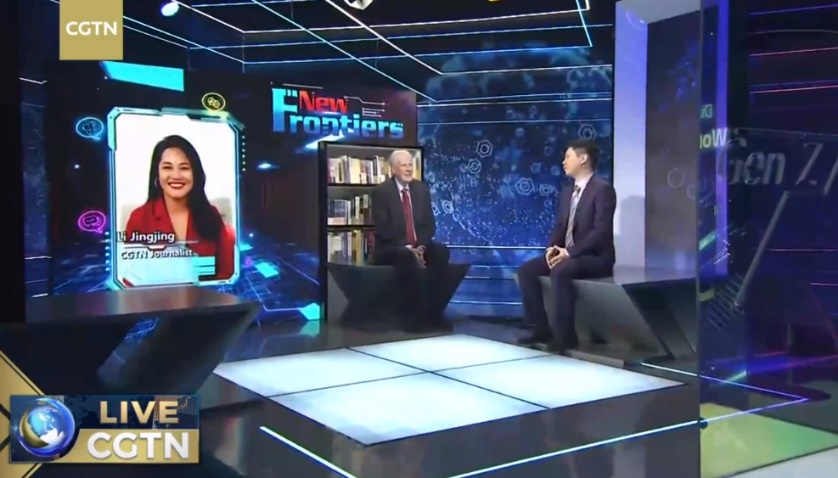CGTN Think Tank, the National Communication Center for Science and Technology, of the China Association for Science and Technology (CAST), and the World's Top Scientists Association held a live broadcast of "Break the boundaries of science: Dialogue between Generation Z and top scientists" in Shanghai on Nov 2.
Fifteen world-renowned science award winners, young Chinese scientists and scientific self-media experts exchanged ideas around basic science, cutting-edge technology, social science, medical health, and the cultivation of youth scientific literacy.

Fifteen world-renowned science award winners, young Chinese scientists and scientific self-media experts discuss topics concerning scientific development and cultivation on Nov 2. [Photo provided to chinadaily.com.cn]
During the event, top scientists and young people had a lively discussion on the role of curiosity in scientific research.
The Turing Prize winner John Hopcroft and Harvard University astronomer Robert Kirshner expressed the same views in a dialogue with young scientists.
They believed that curiosity is the basic driving force of science, and that the desire for answers is a powerful force.
Qian Rong, a researcher at the Shanghai Institute of Ceramics of the Chinese Academy of Sciences, and Cao Kecheng, an assistant professor at the Shanghai University of Science and Technology also shared similar views. They believe that talent is not the most important factor for a successful scientific researcher, but that love and passion for something is as important as hard work.

Guests exchange views online. [Photo provided to chinadaily.com.cn]
Interdisciplinary and the balance between liberal arts and science are also hotly discussed topics in the activity.
Richard Zare, winner of the Wolf Prize in Chemistry in 2005, believes that although mass spectrometry was developed in physics, it has many applications in physical chemistry and will be used more frequently in medicine in the future.
On behalf of Generation Z, Mark Schwarzman, a scholar of Tsinghua University, together with scientists, discussed young people's self-growth and scientific literacy, and the balance between liberal arts and sciences, as well as other topics that young people are concerned about.
The 1994 Fields Medal winner Efim Zelmanov also shared the belief that learning some general scientific knowledge is of great benefit to cultivating people's thinking ability and logical thinking.

Scientists and self-media experts share opinions. [Photo provided to chinadaily.com.cn]
The event aims to create a scientific platform for cross-border dialogue, promote the spark of thinking between Generation Z and top scientists, and explore the nature of science and the future development direction of mankind from different perspectives.